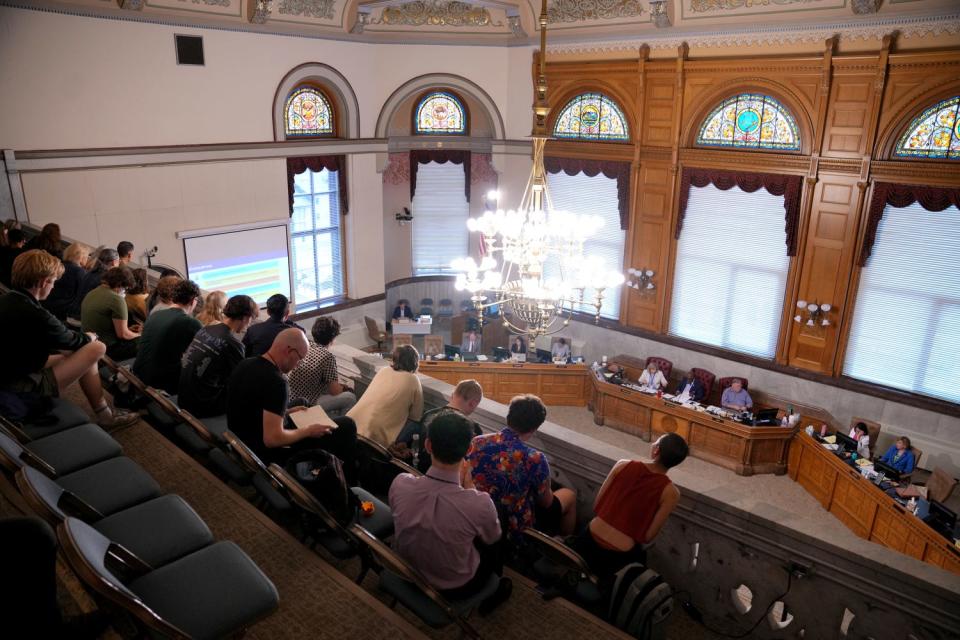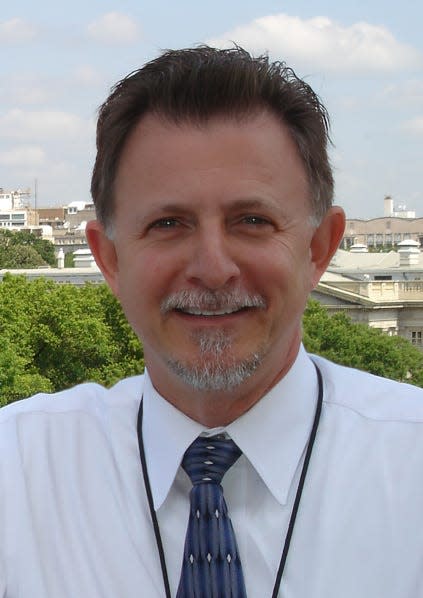Bad handling of Connected Communities didn't improve public's trust in City Hall | Opinion

It is not a coincidence that Columbus and Cleveland are also currently involved in "pushing" through their own version of "upzoning." One explanation for all three of Ohio’s major cities pushing upzoning at the same time is that they are being told to do so by their national political party. Connected Communities is not a home-grown, bottom-up solution. It is a top-down, deadline-driven, unproven "solution," heavily influenced by ideology and partisanship.
The Columbus mayor calls his plan, "Zone-In." Unlike our mayor, he appointed a 15-member citizen advisory board. He is conducting two public hearings. In my opinion, the meaningful engagement in Cincinnati was focused on "professional stakeholders," like the Chamber of Commerce and developers, not the community councils, for example.
Columbus has also announced the cost of "Zone-In" to the taxpayers − so far, $3 million. Cincinnati has not disclosed its costs, but you can be assured it was not cheap.
In Cleveland, their mayor is more straightforward about his intent. His plan is to create "15-minute neighborhoods" and an "18-hour city." Cleveland has also implemented their plan in phases, first testing their plan in three neighborhoods. Something suggested by a coalition of our residents but ignored by our mayor, City Council and planning commission.
In February, at the national Democratic Party’s annual retreat, U.S. Representative Maxine Waters announced her party’s housing initiative. Representative Waters is the ranking member of the Financial Services Committee, which has jurisdiction over federal housing policy.
A Feb. 9, Axios headline about the initiative reads, "House Democrats poke the NIMBY bear with 2024 housing push." According to the report, the purpose of the initiative is to "Try to get cities and towns to stop mandating single-family homes in low-density neighborhoods and allow multi-family homes with affordable units."
It seems like when Maxine Waters says "jump," our mayor asks, "how high?" What else explains the mayor placing the ordinance on such an arbitrary and unreasonable "rocket docket?"

The mayor is quick to tell us that it will take 10 years for this plan to work. We just need to trust him. Coincidentally, we were told it will take 10 years to address deferred maintenance and infrastructure repairs, after the sale of the Cincinnati Southern Railway.
There were more than 40,000 votes, nearly 50%, against the sale of the railroad. Those voters did not trust the politicians, i.e., the politicians would squander the money. After the referendum, the mayor and Councilman Reggie Harris publicly acknowledged the need to regain the trust of the voters.
Now, just six months later, 50% of Cincinnati’s community councils, representing 100,000 residents, voted to oppose Connected Communities and another 40% told the Enquirer that they did not have enough information. That does not reflect much progress in regaining trust.
A well-respected member of the Pendleton neighborhood used her two minutes at the June 5 council meeting to specifically call out the mayor and council for the public’s continuing lack of trust in City Hall.
It is yet to be seen whether Cincinnati voters will be able to vote in a referendum in 2025 on the future of Connected Communities. But voters will have the opportunity to decide the future make-up of Cincinnati City Council. Whatever the case may be, it is always better to trust the voters rather than elected incumbents who are pushing the agenda of their national party when, sometimes, they should not be.
Todd J. Zinser lives in West Price Hill and is supporting Citizens for a Better Cincinnati. He retired as the Inspector General of the U.S. Department of Commerce after 31 years of conducting audits and investigations of federal officials, programs and operations and remains a certified fraud examiner.

This article originally appeared on Cincinnati Enquirer: Connected Communities an unproven housing solution driven by politics

